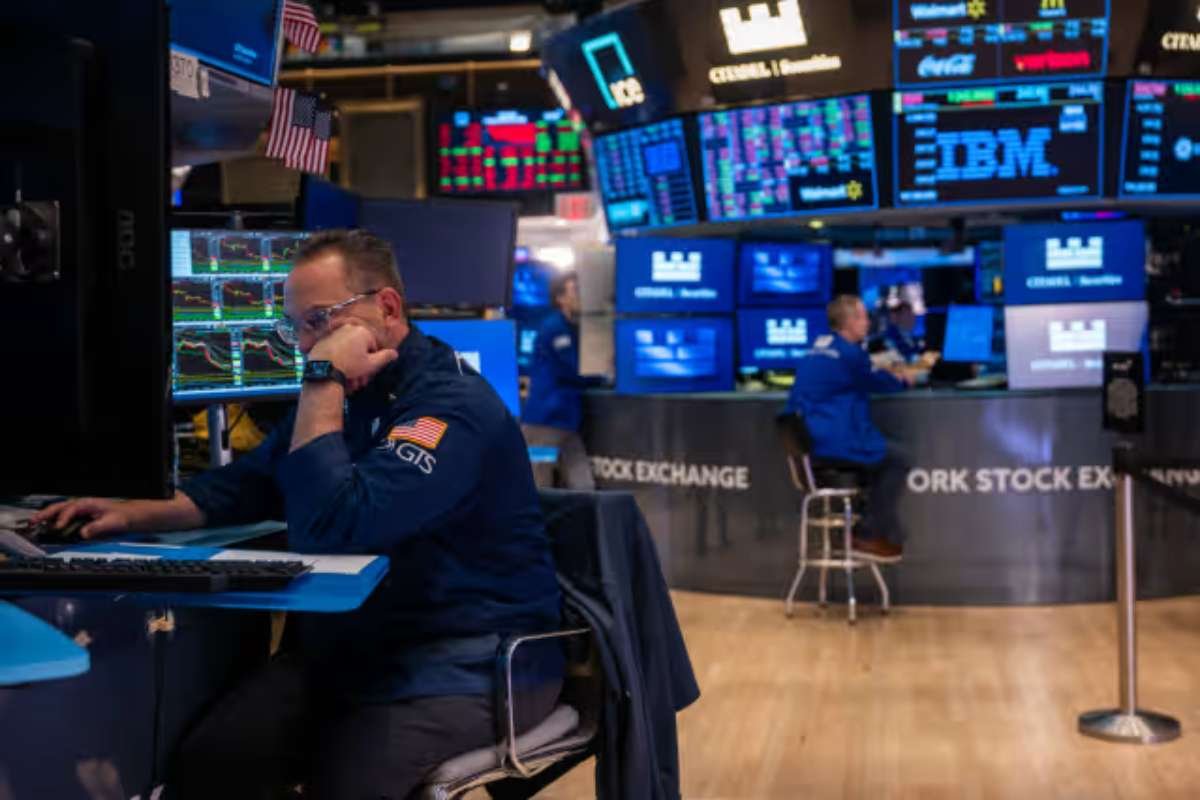The U.S. stock market rally continued its upward momentum on Thursday, extending a three-day rally as investors remained cautiously optimistic about trade negotiations and analyzed signals from the Federal Reserve. The S&P 500 rose by 2 percent, rebounding after a shaky start to the trading day. This gain followed a volatile week that began with a sharp drop on Monday and saw recovery after President Trump suggested a more conciliatory tone toward China in trade discussions.
However, the stock market rally momentarily stalled when Chinese officials publicly denied that any trade negotiations were currently underway. He Yadong, spokesperson for China’s Ministry of Commerce, dismissed reports of progress in U.S.-China talks as “baseless rumors,” emphasizing that no economic discussions were ongoing. Meanwhile, Guo Jiakun from China’s Ministry of Foreign Affairs reinforced Beijing’s stance, stating China would only engage in talks under specific conditions and stood ready to respond firmly if necessary.
Despite these comments, investors remained hopeful that dialogue between the two nations might resume, and markets continued to fluctuate with each new development related to trade policies and economic data.
Fed Comments and Economic Outlook Shape Investor Sentiment
Adding to the day’s developments, Christopher Waller, a Federal Reserve governor, addressed the potential economic impact of tariffs. He noted that any consequences from President Trump’s tariffs would likely emerge gradually and suggested that the central bank is not yet inclined to lower interest rates. However, he outlined scenarios that might change his stance, such as rising unemployment, a decline in consumer spending, or a drop in growth projections.
Waller’s cautious approach helped temper expectations of immediate monetary easing, yet it also reassured markets that the Fed was monitoring economic indicators closely and would respond if conditions deteriorated.
Elsewhere, U.S. Treasury Secretary Scott Bessent clarified that there were no current plans to unilaterally reduce tariffs on Chinese imports. He stressed that any move toward de-escalation would have to be reciprocal, stating, “I don’t think either side believes that the current tariff levels are sustainable.”
Despite these mixed messages, the broader market reaction leaned positive, fueled in part by gains in technology stocks and investor optimism that further economic shocks could still be mitigated through policy adjustments.
Market and Global Reactions Reflect Lingering Volatility
Investor sentiment also reflected broader market dynamics and corporate signals. Major tech stocks led the day’s stock market rally, with the Nasdaq Composite climbing 2.7 percent. Notable performers included Amazon and Nvidia, both gaining over 3 percent. However, concerns remained on the corporate front as several companies issued cautious earnings forecasts. PepsiCo and Merck both lowered their financial outlooks due to tariff-related pressures, while American Airlines withheld its guidance for the rest of the year amid economic uncertainty.
In currency markets, the U.S. dollar weakened against the euro, British pound, and Japanese yen. Meanwhile, U.S. Treasury bond yields declined, with the 10-year bond yield falling to 4.31 percent, reflecting ongoing investor caution. Oil prices also saw modest gains, with Brent crude rising by 0.4 percent to over $66 a barrel.
Internationally, market reactions were mixed. Japan posted gains, while the stock market rally in Hong Kong and South Korea declined. European markets, including those in Britain, France, and Germany, remained largely unchanged.
In all, Thursday’s trading highlighted investor resilience despite unresolved trade tensions and uncertain economic signals, as markets continued to navigate a complex global landscape.
Visit CIO Women Magazine For The Most Recent Information.









